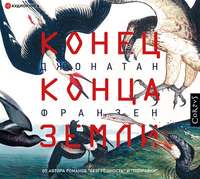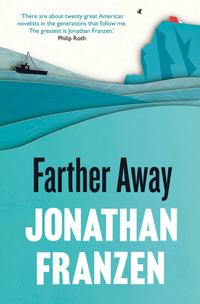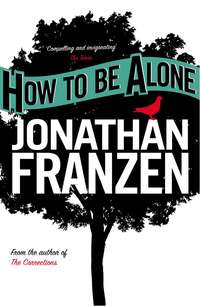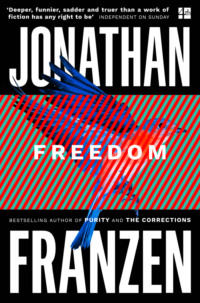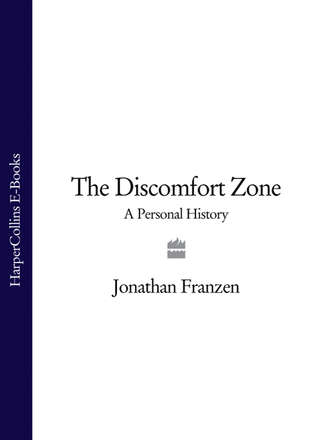
Полная версия
The Discomfort Zone: A Personal History
Need I add that it didn’t last? As my parents grew older and my brothers and I fled the center geographically, ending up on the coasts, so the country as a whole has fled the center economically, ending up with a system in which the wealthiest one percent of the population now takes in sixteen percent of total income (up from eight percent in 1975). This is a great time to be an American CEO, a tough time to be the CEO’s lowest-paid worker. A great time to be Wal-Mart, a tough time to be in Wal-Mart’s way, a great time to be an incumbent extremist, a tough time to be a moderate challenger. Fabulous to be a defense contractor, shitty to be a reservist, excellent to have tenure at Princeton, grueling to be an adjunct at Queens College; outstanding to manage a pension fund, lousy to rely on one; better than ever to be bestselling, harder than ever to be mid-list; phenomenal to win a Texas Hold ’Em tournament, a drag to be a video-poker addict.
On an August afternoon six years after my mother died, while a major American city was being destroyed by a hurricane, I went golfing with my brother-in-law on a funky little mountain course in northern California. It was a tough time to be in New Orleans but a great time to be out West, where the weather was perfect and the Oakland A’s, an underpaid team I like to follow, were making their annual late-summer run at first place. My biggest worries of the day were whether I should feel bad about quitting work at three and whether my favorite organic grocery store would have Meyer lemons for the margaritas I wanted to make après golf. Unlike George Bush’s crony Michael Brown, who was thinking about his manicure and his dinner reservations that week, I had the excuse of not being the director of the Federal Emergency Management Agency. With every ball I hooked into the woods or topped into a water hazard, my brother-in-law joked, “At least you’re not sitting on a roof with no drinking water, waiting for a helicopter to pick you up.” Two days later, when I flew back to New York, I worried that Katrina’s aftermath might create unpleasant turbulence on my flight, but the ride was unusually smooth, and the weather in the East was warm and cloudless.
Things had been going well for me in the years since my mother’s death. Instead of being in debt and living at the mercy of the city’s rent-control laws, I now owned a nice apartment on East Eighty-first Street. Walking in the door, after two months in California, I had the sensation of walking into somebody else’s apartment. The guy who lived here was apparently a prosperous middle-aged Manhattanite with the sort of life I’d spent my thirties envying from afar, vaguely disdaining, and finally being defeated in my attempts to imagine my way into. How odd that I now had keys to this guy’s apartment.
My housesitter had left the place clean and neat. I’d always favored bare floors and minimal furniture—had had my fill of Traditional when I was growing up—and I’d taken very few things from my mother’s house after she died. Kitchenware, photo albums, some pillows. A tool chest that my great grandfather had made. A painting of a ship that could have been the Dawn Treader. An assortment of small objects that I held on to out of loyalty to my mother: an onyx banana, a Wedgwood candy dish, a pewter candlesnuffer, a brass niello-handled letter opener, with matching scissors, in a green leather sheath.
Because there were so few things in the apartment, it didn’t take me long to figure out that one of them—the pair of scissors from the sheath—had disappeared while I was in California. My reaction was like that of the dragon Smaug in The Hobbit, when Smaug realizes that a gold cup is missing from his mountain of precious objects. I flew around and around the apartment, smoke spewing from my nostrils. When I interrogated the housesitter, who said she hadn’t seen the scissors, I had to struggle not to bite her head off. I ransacked the place, went through every drawer and cabinet twice. It enraged me that, of all the things that could have disappeared, what I’d lost had been something of my mother’s.
I was enraged about the aftermath of Katrina, too. For a while, that September, I couldn’t go online, open a newspaper, or even take cash from an ATM without encountering entreaties to aid the hurricane’s homeless victims. The fund-raising apparatus was so far-reaching and well orchestrated it seemed quasi-official, like the “Support Our Troops” ribbons that had shown up on half the country’s cars overnight. But it seemed to me that helping Katrina’s homeless victims ought to be the government’s job, not mine. I’d always voted for candidates who wanted to raise my taxes, because I thought paying taxes was patriotic and because my idea of how to be left alone—my libertarian ideal!—was a well-funded, well-managed central government that spared me from having to make a hundred different spending decisions every week. Like, was Katrina as bad as the Pakistan earthquake? As bad as breast cancer? As bad as AIDS in Africa? Not as bad? How much less bad? I wanted my government to figure these things out.
It was true that the Bush tax cuts had put some extra money in my pocket, and that even those of us who hadn’t voted for a privatized America were still obliged to be good citizens. But with government abandoning so many of its former responsibilities, there were now hundreds of new causes to contribute to. Bush hadn’t just neglected emergency management and flood control; aside from Iraq, there wasn’t much he hadn’t neglected. Why should I pony up for this particular disaster? And why give political succor to people I believed were ruining the country? If the Republicans were so opposed to big government, let them ask their own donors to pony up! It was possible, moreover, that the antitax billionaires and antitax small-business owners who got antitax representatives elected to Congress were all giving generously to the relief effort, but it seemed equally likely that these people whose idea of injustice was getting to keep only $2 million of their $2.8 million annual income, rather than all of it, were secretly counting on the decency of ordinary Americans to help with Katrina: were playing us for suckers. When private donations replaced federal spending, you had no idea who was freeloading and who was pulling twice their weight.
All of which was to say: my impulse toward charity was now fully subordinate to my political rage. And it wasn’t as if I was happy to feel so polarized. I wanted to be able to write a check, because I wanted to put Katrina’s victims out of my mind and get back to enjoying my life, because, as a New Yorker, I felt I had a right to enjoy my life, because I was living in the number-one terrorist target in the Western Hemisphere, the preferred destination of every future lunatic with a portable nuclear device or smallpox dispenser, and because life in New York was liable to go from great to ghastly even faster than it had in New Orleans. I was arguably already pulling my weight as a citizen simply by living with the many new bull’s-eyes that George Bush had painted on my back—and on the back of every other New Yorker—by starting his unwinnable war in Iraq, wasting hundreds of billions of dollars that could have been spent fighting real terrorists, galvanizing a new generation of America-hating jihadists, and deepening our dependence on foreign oil. The shame and the danger of being a citizen of a country that the rest of the world identified with Bush: wasn’t this enough of a burden?
I’d been back in the city for two weeks, thinking thoughts like these, when I got a mass e-mailing from a Protestant minister named Chip Jahn. I’d known Jahn and his wife in the 1970s, and more recently I’d gone to visit them at their parsonage in rural southern Indiana, where he’d shown me his two churches and his wife had let me ride her horse. The subject header of his e-mail was “Louisiana Mission,” which led me to fear another plea for donations. But Jahn was simply reporting on the tractor-trailers that members of his churches had filled with supplies and driven down to Louisiana:
A couple of women in the congregation said we ought to send a truck south to help with hurricane relief. The Foertschs were willing to donate a truck and Lynn Winkler and Winkler Foods were willing to help get food and water …
Our plans grew as pledges came in. (Just over $35,000 in gifts and pledges. Over $12,000 was from St. Peter and Trinity.) We quickly began looking for another truck and drivers. It turned out to be no more difficult to find these than it was to raise the money. Larry and Mary Ann Wetzel were ready with their truck. Phil Liebering would be their second driver …
Foertsch’s truck had the heavier but shorter trailer, which was loaded with water. Larry’s truck had the pallets of food and baby supplies. We bought $500 worth of towels and washcloths and 100 foam sleeping pads at the last minute, because of the great response of pledges. Both were on Thibodaux’s wish list. They were happy to see us. The unloading went quickly and they asked if they could use Wetzel’s semitrailer to move the clothes to another warehouse, which meant they could move it with a forklift instead of by hand …
Reading Jahn’s e-mail, I wished, as I would ordinarily never wish, that I belonged to a church in southern Indiana, so that I could have ridden in one of those trucks. It would have been awkward, of course, to sit in a church every Sunday and sing hymns to a God I didn’t believe in. And yet: wasn’t this exactly what my parents had done on every Sunday of their adult lives? I wondered how I’d got from their world into the apartment of a person I didn’t even recognize as myself. Throughout the autumn, whenever my eyes fell on the half-empty leather sheath, the absence of the scissors stabbed me afresh. I simply couldn’t believe they’d disappeared. Months after my return, I was still reransacking drawers and closet shelves I’d searched three times already.
The other house of my childhood was a sprawling, glass-fronted, six-bedroom rich person’s retreat on a vast white-sand beach in the Florida Panhandle. In addition to its private Gulf frontage, the house came with free local golf and deep-sea fishing privileges and a refrigerated beer keg that guests were encouraged to make unlimited use of; there was a phone number to call if the keg ever ran dry. We were able to vacation in this house, living like rich people, for six consecutive Augusts, because the railroad my father worked for sometimes bought rail-maintenance equipment from the house’s owner. Without informing the owner, my parents also took the liberty of asking along our good friends Kirby and Ellie, their son David, and, one year, their nephew Paul. That there was something not quite right about these arrangements was evident in my parents’ annual reminders to Kirby and Ellie that it was extremely important that they not arrive at the house early, lest they run into the owner or the owner’s agent.
In 1974, after we’d vacationed in the house for five straight years, my father decided that we had to stop accepting the owner’s hospitality. He was giving more and more of his business to one of the owner’s competitors, an Austrian manufacturer whose equipment my father considered superior to anything being made in the United States. In the late sixties, he’d helped the Austrians break into the American market, and their gratitude to him had been immediate and total. In the fall of 1970, at the company’s invitation, he and my mother had taken their first-ever trip to Europe, visiting Austria and the Alps for a week and Sweden and England for another week. I never found out whether the company paid for absolutely everything, including airfare, or whether it paid only for their meals and their nights in top-drawer hotels like the Imperial in Vienna and the Ritz in Paris, and for the Lincoln Continental and its driver, Johann, who chauffeured my parents around three countries and helped them with their shopping, none of which they could have afforded on their own. Their companions for the trip were the company’s head of American operations and his wife, Use, who, beginning every day at noon, taught them how to eat and drink like Europeans. My mother was in heaven. She kept a diary of restaurants and hotels and scenic attractions—
Lunch at Hotel Geiger “Berchtesgarden”—wonderful food & spectacular atmosphere—Schnapps, sausage (like raw bacon) & brown bread atop mountain—
and if she was aware of certain historical facts behind the scenery, such as Hitler’s frequent visits to Berchtesgaden for recreational getaways, she didn’t mention it.
My father had had serious qualms about accepting such lavish hospitality from the Austrians, but my mother had worn him down to the point where he agreed to ask his boss, Mr. German, whether he should decline the invitation. (Mr. German had answered, essentially, “Are you kidding me?”) In 1974, when my father voiced misgivings about returning to Florida, my mother again wore him down. She pointed out that Kirby and Ellie were expecting our invitation, and she kept repeating the phrase “Just this one last year,” until finally, reluctantly, my father signed off on the usual plan.
Kirby and Ellie were good bridge players, and it would have been a dull trip for my parents with only me along. I was a silent, withdrawn presence in the back seat for the two-day drive through Cape Girardeau, Memphis, Hattiesburg, and Gulfport. As we were driving up the road toward the beach house, on an overcast afternoon made darker by an ominous bank of new high-rise condominiums encroaching from the east, I was struck by how unexcited I was to be arriving this year. I had just turned fifteen and was more interested in my books and my records than in anything on the beach.
We were within sight of the house’s driveway when my mother cried, “Oh no! No!” My father cried “Damn!” and swerved off the road, pulling to a stop behind a low dune with sea oats on it. He and my mother—I’d never seen anything like it—crouched down in the front seat and peered over the dashboard.
“Damn!” my father said again, angrily.
And then my mother said it, too: “Damn!”
It was the first time and the last time I ever heard her swear. Farther up the road, in the driveway, I could see Kirby standing beside the open door of his and Ellie’s sedan. He was chatting affably with a man who, I understood without asking, was the owner of the house.
“Damn!” my father said.
“Damn!” my mother said.
“Damn! Damn!”
They’d been caught.
Exactly twenty-five years later, the realtor Mike and my brother Tom agreed on an asking price of $382,000 for the house. Over the Labor Day weekend, when we all gathered in St. Louis to hold a memorial service for my mother, Mike dropped in only briefly. She appeared to have forgotten the ardor of our initial meeting—she barely spoke to me now—and she was subdued and deferential with my brothers. She’d finally held an open house a few days earlier, and of the two prospective buyers who’d shown some interest, neither had made an offer.
In the days after the memorial service, as my brothers and I went from room to room and handled things, I came to feel that the house had been my mother’s novel, the concrete story she told about herself. She’d started with the cheap, homely department-store boilerplate she’d bought in 1944. She’d added and replaced various passages as funds permitted, re-upholstering sofas and armchairs, accumulating artwork ever less awful than the prints she’d picked up as a twenty-three-year-old, abandoning her original arbitrary color schemes as she discovered and refined the true interior colors that she carried within her like a destiny. She pondered the arrangement of paintings on a wall like a writer pondering commas. She sat in the rooms year after year and asked herself what might suit her even better. What she wanted was for you to come inside and feel embraced and delighted by what she’d made; she was showing you herself, by way of hospitality; she wanted you to want to stay.
Although the furniture in her final draft was sturdy and well made, of good cherry and maple, my brothers and I couldn’t make ourselves want what we didn’t want; I couldn’t prefer her maple nightstand to the scavenged wine crate that I kept by my bed in New York. And yet to walk away and leave her house so fully furnished, so nearly the way she’d always wanted it to look, gave me the same panicked feeling of waste that I’d had two months earlier, when I’d left her still-whole body, with her hands and her eyes and her lips and her skin so perfectly intact and lately functional, for a mortician’s helpers to take away and burn.
In October, we hired an estate liquidator to put a price tag on all the things we’d left behind. At the end of the month, people came and bought, and Tom got a check for fifteen thousand dollars, and the liquidator made whatever she hadn’t sold just disappear, and I tried not to think about the sad little prices that my mother’s worldly goods had fetched.
As for the house, we did our best to sell it while it was still furnished. With the school year under way, and with no eager young Catholic parents bombarding us with offers, we dropped the price to $369,000. A month later, as the estate sale loomed and the oak leaves were coming down, we cut the price again, to $359,000. At Mike’s suggestion, we also ran a newspaper ad that showed the house under a Yuletide mantle of snow, looking the way my mother had most liked to see it pictured, along with a new tag line (also a suggestion of Mike’s): HOME FOR THE HOLIDAYS. Nobody went for it. The house stood empty through all of November. None of the things my parents had thought would sell the house had sold it. It was early December before a young couple came along and mercifully offered us $310,000.
By then I was convinced that the realtor Pat could have sold the house in mid-August for my mother’s suggested price. My mother would have been stricken to learn how much less we took for it—would have experienced the devaluation as a dashing of her hopes, a rejection of her creative work, an unwelcome indication of her averageness. But this wasn’t the big way I’d let her down. She was dead now, after all. She was safely beyond being stricken. What lived on—in me—was the discomfort of how completely I’d outgrown the novel I’d once been so happy to live in, and how little I even cared about the final sale price.
Our friend Kirby, it turned out, had charmed the owner of the Florida house, and the beer keg was fully operational, and so our last week of living like rich people unfolded amicably. I spent morbid, delicious amounts of time by myself, driven by the sort of hormonal instinct that I imagine leads cats to eat grass. The half-finished high-rises to our east were poised to engulf our idyll, even if we’d wanted to come back another year, but the transformation of a quiet, sandpiper-friendly beach into a high-density population center was such a novelty for us that we didn’t even have a category for the loss it represented. I studied the skeletal towers the way I studied bad weather.
At the end of the week, my parents and I drove deeper into Florida, so that I could be taken to Disney World. My father was big on fairness, and because my brothers had once spent a day at Disneyland, many years earlier, it was unthinkable that I not be given the equivalent treat of a day at Disney World, whether or not I was too old for it, and whether or not I wanted to be there. I might not have minded going with my friend Manley, or with my not-girlfriend Hoener, and mocking and subverting the place and allowing myself to like it that way. But mocking and subverting in the presence of my parents was out of the question.
In our hotel room in Orlando, I begged my mother to let me wear my cutoff jeans and a T-shirt for the day, but my mother won the argument, and I arrived at Disney World in an ensemble of pleated shorts and a Bing Crosbyish sport shirt. Dressed like this, miserable with self-consciousness, I moved my feet only when I was directly ordered to. All I wanted to do was go sit in our car and read. In front of each themed ride, my mother asked me if it didn’t look like lots of fun, but I saw the other teenagers waiting in line, and I felt their eyes on my clothes and my parents, and my throat ached, and I said the line was too long. My mother tried to cajole me, but my father cut her off: “Irene, he doesn’t want to ride this one.” We trudged on through diffuse, burning Florida sunshine to the next crowded ride. Where, again, the same story.
“You have to ride something” my father said finally, after we’d had lunch. We were standing in the lee of an eatery while tawny-legged tourist girls thronged toward the water rides. My eyes fell on a nearby merry-go-round that was empty except for a few toddlers.
“I’ll ride that,” I said in a dull voice.
For the next twenty minutes, the three of us boarded and re-boarded the dismal merry-go-round, ensuring that our ride tickets weren’t going to waste. I stared at the merry-go-round’s chevroned metal floor and radiated shame, mentally vomiting back the treat they’d tried to give me. My mother, ever the dutiful traveler, took pictures of my father and me on our uncomfortably small horses, but beneath her forcible cheer she was angry at me, because she knew she was the one I was getting even with, because of our fight about clothes. My father, his fingers loosely grasping a horse-impaling metal pole, gazed into the distance with a look of resignation that summarized his life. I don’t see how either of them bore it. I’d been their late, happy child, and now there was nothing I wanted more than to get away from them. My mother seemed to me hideously conformist and hopelessly obsessed with money and appearances; my father seemed to me allergic to every kind of fun. I didn’t want the things they wanted. I didn’t value what they valued. And we were all equally sorry to be riding the merry-go-round, and we were all equally at a loss to explain what had happened to us.
Two Ponies
IN MAY 1970, a few nights after National Guardsmen killed four student protesters at Kent State University, my father and my brother Tom started fighting. They weren’t fighting about the Vietnam War, which both of them opposed. The fight was probably about a lot of different things at once. But the immediate issue was Tom’s summer job. He was a good artist, with a meticulous nature, and my father had encouraged him (you could even say forced him) to choose a college from a short list of schools with strong programs in architecture. Tom had deliberately chosen the most distant of these schools, Rice University, and he’d just returned from his second year in Houston, where his adventures in late-sixties youth culture were pushing him toward majoring in film studies, not architecture. My father, however, had found him a plum summer job with Sverdrup & Parcel, the big engineering firm in St. Louis, whose senior partner, General Leif Sverdrup, had been an Army Corps of Engineers hero in the Philippines. It couldn’t have been easy for my father, who was shy about asking favors, to pull the requisite strings at Sverdrup. But the office gestalt was hawkish and buzz-cut and generally inimical to bell-bottomed, lefty film-studies majors; and Tom didn’t want to be there.
Up in the bedroom that he and I shared, the windows were open and the air had the stuffy wooden house smell that came out every spring. I preferred the make-believe no-smell of air-conditioning, but my mother, whose subjective experience of temperature was notably consistent with low gas and electricity bills, claimed to be a devotee of “fresh air,” and the windows often stayed open until Memorial Day.
On my night table was the Peanuts Treasury, a large, thick hardcover compilation of daily and Sunday funnies by Charles M. Schulz. My mother had given it to me the previous Christmas, and I’d been rereading it at bedtime ever since. Like most of the nation’s ten-year-olds, I had a private, intense relationship with Snoopy, the cartoon beagle. He was a solitary not-animal animal who lived among larger creatures of a different species, which was more or less my feeling in my own house. My brothers were less like siblings than like an extra, fun pair of quasi-parents. Although I had friends and was a Cub Scout in good standing, I spent a lot of time alone with talking animals. I was an obsessive rereader of A. A. Milne and the Narnia and Dr. Dolittle novels, and my involvement with my collection of stuffed animals was on the verge of becoming age-inappropriate. It was another point of kinship with Snoopy that he, too, liked animal games. He impersonated tigers and vultures and mountain lions, sharks, sea monsters, pythons, cows, piranhas, penguins, and vampire bats. He was the perfect sunny egoist, starring in his ridiculous fantasies and basking in everyone’s attention. In a cartoon strip full of children, the dog was the character I recognized as a child.


